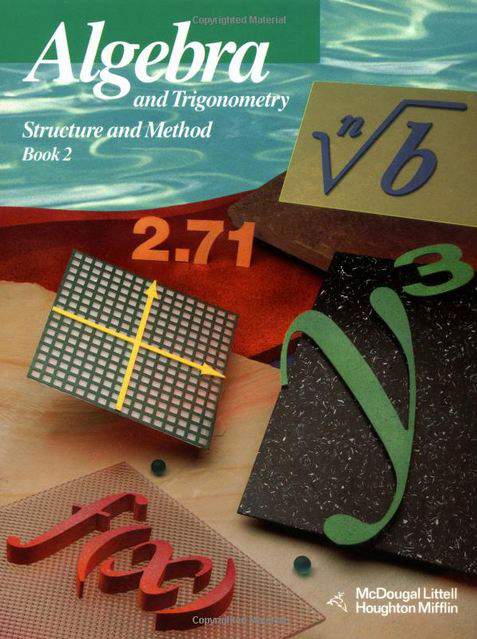Connecting...

This is a quick preview of the lesson. For full access, please Log In or Sign up.
For more information, please see full course syllabus of Algebra 2
For more information, please see full course syllabus of Algebra 2
Algebra 2 Rational Zero Theorem
Lecture Description
The rational zero theorem tells us the possible rational zeros of a polynomial. So using this theorem, you'll be able to create a list of numbers that might be zeros, but don't have to be. Leading coefficient is very important in this theorem. You'll learn about the cases where the leading coefficient is 1, and cases where it's different from 1. You need to use synthetic substitution to test each possible rational root in your list. The examples in this lesson will help you learn how to find all zeros of the polynomial function.
Bookmark & Share
Embed
Share this knowledge with your friends!
Copy & Paste this embed code into your website’s HTML
Please ensure that your website editor is in text mode when you paste the code.(In Wordpress, the mode button is on the top right corner.)
×
Since this lesson is not free, only the preview will appear on your website.
- - Allow users to view the embedded video in full-size.
Next Lecture
Previous Lecture









































 Carleen Eaton
Carleen Eaton Grant Fraser
Grant Fraser
 Answer Engine
Answer Engine



1 answer
Last reply by: Ben Guo
Mon Jul 13, 2020 11:31 AM
Post by Jerry Jin on July 23, 2019
What if there is no constant?
0 answers
Post by Kenneth Geller on February 18, 2019
Very interesting concepts!! Who in the past figured these somewhat elegant rules out?
1 answer
Fri Jun 8, 2018 11:41 PM
Post by John Stedge on June 7, 2018
What if there is no constant?
1 answer
Fri Jun 8, 2018 11:35 PM
Post by John Stedge on June 7, 2018
In example one is the function supposed to say f(x)=2x^4-3x^2+6x^2-x+9 or f(x)=2x^4-3x^3+6x^2-x+9?
0 answers
Post by julius mogyorossy on December 16, 2013
I was wondering how do you know when you should continue to factor to find the remaining 0's, you say the way you did it in Ex. 4 is simpler, not to me, yet, but I realized, I think, that since the degree is 3, you know if you can only find one positive or real root, that you can, must, factor, to find the remaining roots, the complex roots, is this correct?
1 answer
Thu Jun 13, 2013 11:59 PM
Post by Kavita Agrawal on June 13, 2013
Isn't the constant in the first example, 4x^2 + x - 3, -3 and not 3? I don't think this should make difference, though...